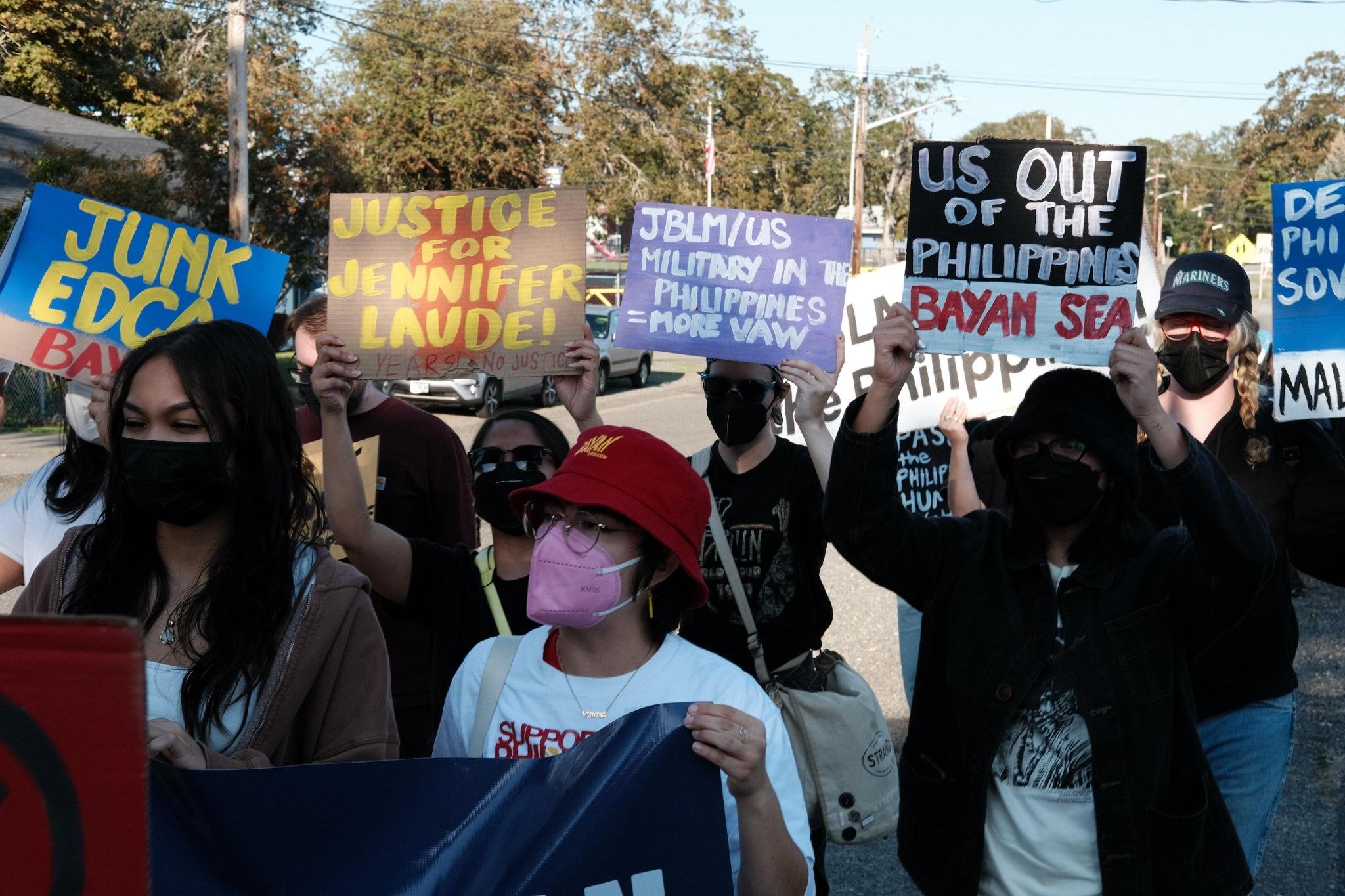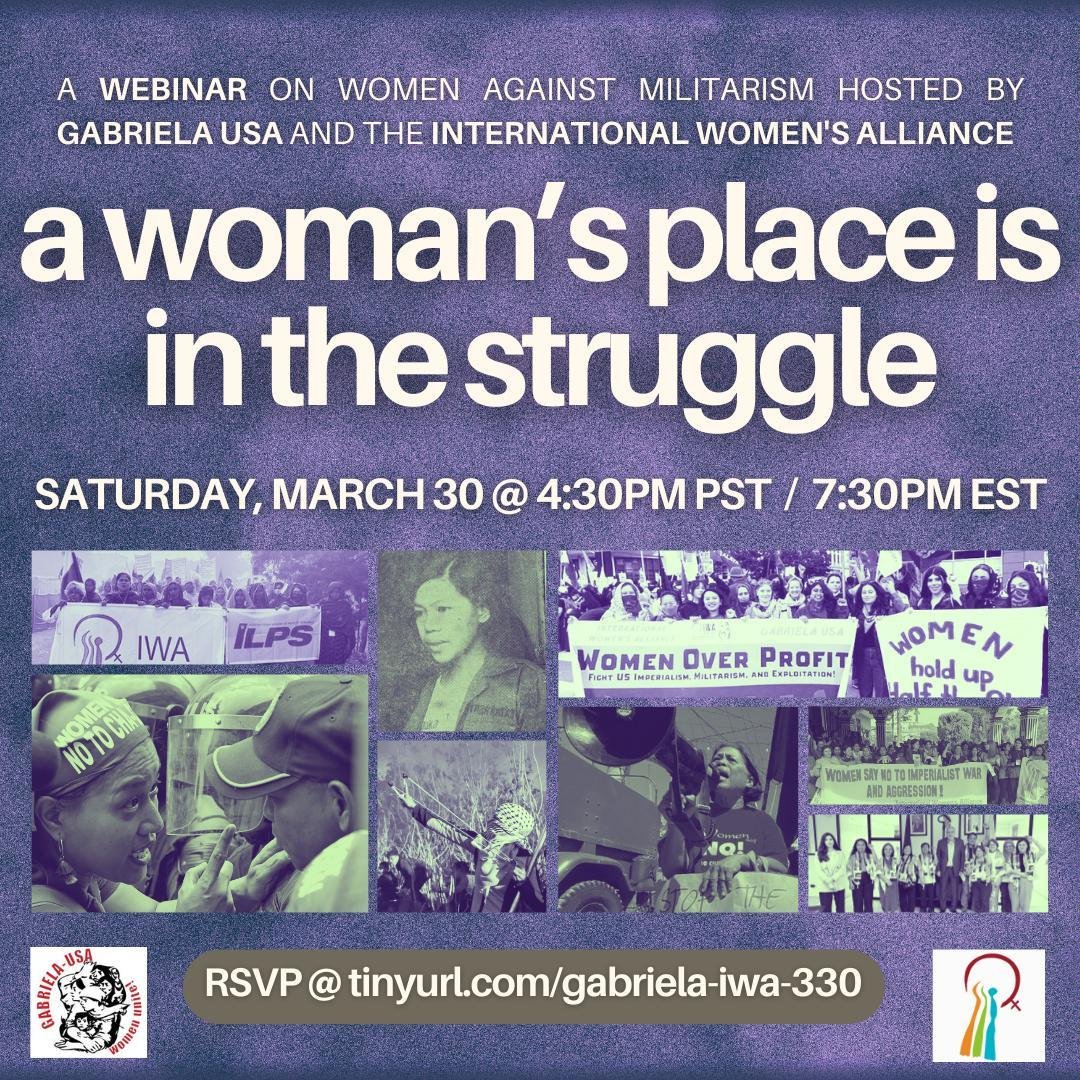Defend Peasant & Working Women from US Military Violence!
End Violence Against Women!
““Violence against women is the cheapest tool of war…””
Under the Marcos Jr. administration the budget for agriculture is severely neglected. Instead, the Marcos administration had made its priorities clear by allocating large amounts of the budget towards servicing foreign and domestic debt, infrastructure projects and “defense” or militarization. Of the over P6.352 trillion (USD $113 billion) national budget - only 2.0% is allocated to the Department of Agriculture.
While they suffer under US militarization, Marcos has not provided any economic relief for these poor peasant families. Marcos’ 2025 national budget is yet another huge scheme for pork barrel and corruption. In his 2024 SONA, Marcos boasted that he wants to seriously address the agricultural sector and its ability to produce more effectively, but the truth is in the numbers: no subsidy for farmers affected by El Niño or La Niña, a decrease of ₱460.44 million for the Fuel Assistance to Farmers budget (now only ₱50 million), and no plans to increase purchase of rice from farmers who have to compete against cheap, imported rice in the market. When you compare the overall budget for Agriculture (P128 billion), it is barely half of the budget for defense (P256.1 billion) which received a 51% increase.
With these significant budget cuts that directly impact the peasants and farm workers, many of whom are women, and continued lack of subsidies for peasants and other financial assistance from the government, it is clear that Marcos and his administration’s agenda only benefits the wealthy few in the country including the Marcos dynasty.
For peasant women, many are poorly classified as “unpaid family labor,” being forced to do domestic work for free or doing odd jobs to retain their housing as tenants. They are often also solely responsible for the household chores and taking care of their children. For those who are paid, they make a lower wage than their male counterparts. They have no access to free healthcare, are victims of abuse and discrimination, and are not prioritized to get an education. Furthermore, many peasant women are forced to migrate to the cities and abroad to find work because of financial hardships, even though there is a lack of adequate jobs.
In addition to these problems, peasants have been attacked and even murdered in their communities by Philippine state forces. The presence of the Armed Forces of the Philippines (AFP) and Philippine National Police (PNP) is a direct threat to the lives of many Filipino women. They routinely harass, surveil, red-tag, hamlet and intimidate women, including using sexual violence as one of their weapons of domination. Other weapons they use (arms, drones, bombs, etc.) are funded or provided by the United States and/or multinational corporations (i.e. San Miguel Corporation). In a Karapatan report from Jan-June 2024, 105 extrajudicial killings were committed under the Marcos regime - 21 of which were women.
In the face of state violence and repression, women in the peasant movement are fighting for their livelihood and resisting, despite the attacks and ongoing struggles that the Marcos regime, backed and funded by the US, is responsible for. With the continuing plight of women peasants, coupled with the government's failure to address their calls, this has driven women peasants to unite and fight. Many women have formed Bungkalan communities (collective farming), a practice that is criminalized by the Philippine government simply because it is in the interest of the peasants and not profit. The struggle of peasant women continues, both as part of the overall peasant movement and also the national democratic movement for the achievement of genuine land reform and national industrialization.
CONTEXT
Amidst the ongoing crisis for peasant communities, the US is dragging the Filipino people closer toward a war with China in the West Philippine Sea and using Filipino fisherfolk and masses as their pawns. The sharp increase in US military aid for the Philippines this year alone ($2.5 billion through the PERA Act, $500 million from the 2+2 ministerial meetings in July 2024, $128 million for EDCA sites) will only serve to expand militarization of peasant communities, continue the harassment and intimidation tactics of the AFP, and reinforce the use of violence against women (VAW) as the cheapest tool of war. Additionally, more US military presence on Philippine soil not only threatens the livelihood and homes of peasants and urban poor, but also puts Filipino women in particular at risk of being exploited for the sex industry. During the BAYAN Peace Mission in May 2024, investigation revealed the practice of “akyat-barko” was happening, a new tactic of the sex industry that forces women to board the ships and hide this ongoing sexual exploitation.
The agrarian economy in the Philippines is fueled by peasant communities and farmers which make up 75% of the Philippine population. They toil the lands, fish along the archipelago and create export products for the country but they are the poorest class in society. This is due to the continued monopolization of land by the few, rising costs of basic necessities for farmers or fisherfolk to operate and the neoliberal policies that bury them in debt. Their suffering is intensified due to the ongoing importation from foreign countries which diminishes their already low income. Furthermore, accelerated conversions, expanding export plantations, and land grabbing in the midst of natural calamities continues to devastate peasants’ livelihood. Land grabbing can be committed by a combination of multinational corporations, the landed ruling class in government, and their armed state and private forces that violently displace peasants off the land and is a violation of collective people's rights. It is through the Philippine government’s direct collaboration with the US military that places the lives of the peasant communities at risk. There are countless attacks on peasant advocates and leaders which oftentimes does not reach main-stream media. Justice is rarely served for families like the Fausto family or the Bloody Sunday massacre where peasants are brutally slain by the Philippine military.
A Woman’s Place is in the Struggle
March 30, 2024
GABRIELA USA & International Women’s Alliance online webinar about women’s resistance to US militarism across the globe! Watch the whole webinar on our Facebook!


